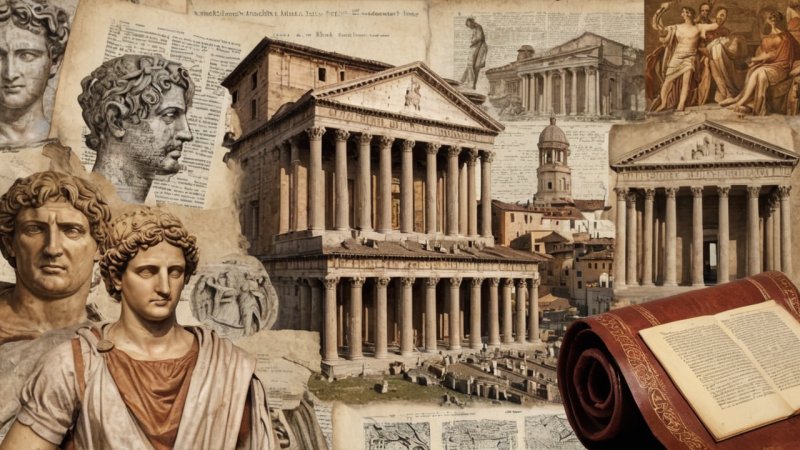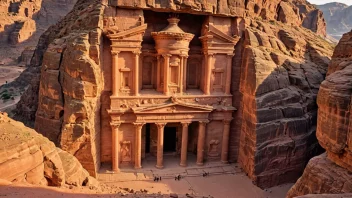Ancient Rome, often referred to as one of the most significant civilizations in history, laid the foundations for numerous aspects of modern Western society. From governance and law to architecture and language, the influence of Rome permeates various facets of contemporary life. This article explores the multifaceted contributions of Ancient Rome and their enduring impact on Western civilization, offering insights into how this ancient power shaped the world we live in today.
The Legacy of Roman Law
One of the most profound influences of Ancient Rome is the development of legal systems. The Roman legal framework has served as a cornerstone for many modern legal systems around the world. The emphasis on codified law, principles of justice, and the rights of individuals was revolutionary for its time and continues to resonate in contemporary jurisprudence.
Roman law was systematized in the Corpus Juris Civilis, compiled under the Byzantine Emperor Justinian I in the 6th century. This comprehensive legal code has influenced the development of civil law in many countries. Key principles that emerged from Roman law include:
- Innocent until proven guilty: This fundamental concept is a cornerstone of modern justice systems.
- Legal representation: The right to defend oneself or have counsel represents a major advancement in legal rights.
- Property rights: Roman law established clear definitions and regulations regarding property ownership.
Political Structures and Governance
The Roman Republic and later the Roman Empire provided a model of governance that has inspired countless political systems. The idea of a republic, where citizens elect representatives, is a direct inheritance from Roman political philosophy. The mechanisms of checks and balances, separation of powers, and civil service were all significant innovations during the Roman era.
Key contributions include:
- Senate and Assemblies: The Roman Senate was a governing body that influenced later parliamentary systems.
- Constitutionalism: The Romans developed a complex constitution that outlined the powers and limitations of government.
- Concept of Citizenship: The Romans expanded the definition of citizenship, granting rights and responsibilities to individuals within their vast empire.
Language and Literature
The Latin language, the lingua franca of Ancient Rome, is the precursor to the Romance languages spoken today, including Spanish, French, Italian, Portuguese, and Romanian. The influence of Latin extends beyond language; it has significantly shaped legal, scientific, and ecclesiastical terminology.
In literature, Roman authors such as Virgil, Cicero, and Ovid have left a lasting legacy. Their works not only reflect the cultural values and societal issues of their time but also continue to be studied for their literary merit. The themes, styles, and rhetorical techniques developed by these authors have influenced Western literature throughout the ages.
Architecture and Engineering
The architectural achievements of Ancient Rome are perhaps some of its most visible legacies. Roman innovations in engineering, such as the arch, the dome, and concrete construction, enabled the creation of monumental structures that have withstood the test of time. The Pantheon, Colosseum, and aqueducts are prime examples of Roman ingenuity.
These architectural principles influenced numerous styles and movements, including the Renaissance, Baroque, and neoclassicism. Many modern buildings still incorporate Roman elements, showcasing the timelessness of their design:
- Arches and Vaults: Used in bridges and buildings, allowing for larger and more stable structures.
- Public Infrastructure: The concept of public baths, forums, and amphitheaters has influenced urban planning.
- Monumental Structures: Inspired by Roman temples and civic buildings, many government buildings today mirror their grandeur.
Religion and Philosophy
Ancient Rome was a melting pot of religious beliefs and philosophical ideas. The transition from polytheism to Christianity marked a significant turning point in Western civilization. The adoption of Christianity as the state religion by Emperor Constantine in the 4th century had profound implications for Europe and beyond.
Roman philosophers such as Seneca, Cicero, and Marcus Aurelius contributed to the development of Stoicism, a philosophy that emphasizes rationality, self-control, and virtue. Their ideas have influenced ethical thought and personal conduct throughout history and continue to resonate today.
Art and Culture
Roman art, from mosaics to sculptures, reflects the society's values, achievements, and beliefs. The Romans were adept at incorporating elements from the cultures they conquered, creating a rich tapestry of artistic expression. This syncretism has contributed to the diverse cultural landscape of the Western world.
In addition, the Roman emphasis on public life and civic duty influenced the development of cultural institutions, such as theaters and public forums, that continue to be central to Western culture.
Education and Science
The Romans placed a high value on education, particularly rhetoric and philosophy. The establishment of schools and the emphasis on public speaking and debate laid the groundwork for modern educational practices. The Romans also made significant contributions to science and medicine, with figures like Galen and Ptolemy shaping the fields of anatomy and astronomy.
Roman advancements in engineering, including road construction and military technology, have had a lasting impact on infrastructure and logistics, influencing modern engineering practices.
Conclusion
The influence of Ancient Rome on Western civilization is profound and far-reaching. From the principles of law and governance to language, architecture, and culture, the legacies of this ancient civilization continue to shape our world. Understanding the contributions of Ancient Rome allows us to appreciate the complexities of modern society and the historical context that has brought us to where we are today. As we move forward, the lessons learned from Roman civilization remind us of the importance of governance, justice, education, and cultural exchange in fostering a thriving society.






